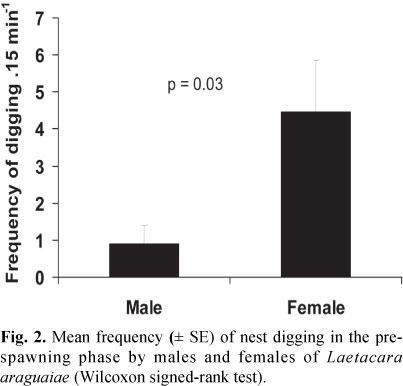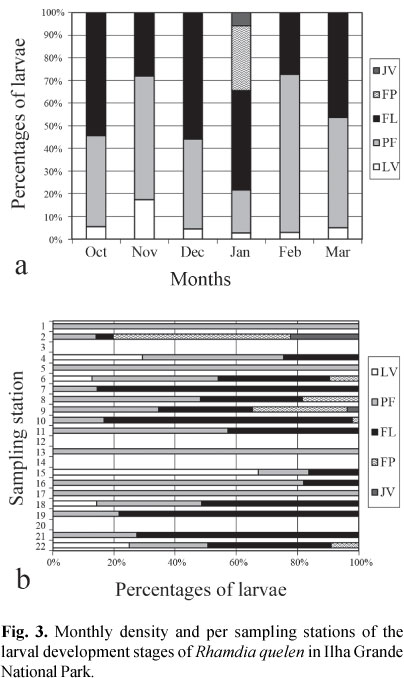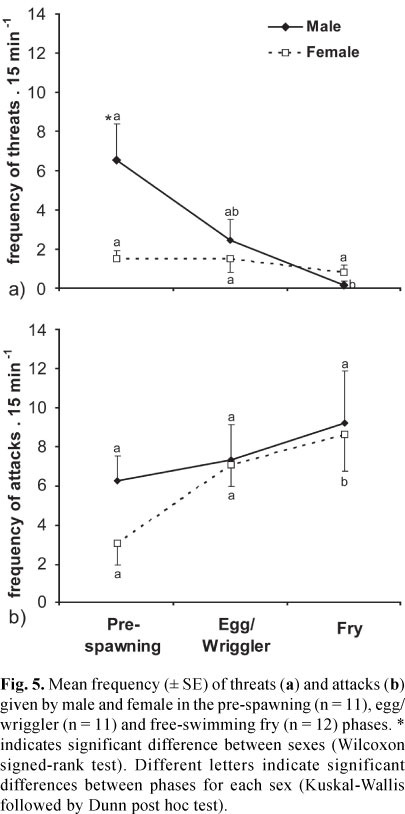We described the reproductive behavior of the small South American cichlid Laetacara araguaiae in streams from Brazil. We predicted that this species will show reproductive cooperation and division of labor between males and females in a similar way presented by other substrate-spawner cichlids. Thus, we studied 34 pairs in the pre-spawning (n = 11), egg/wriggler (n = 11) and fry (n = 12) phases. In the pre-spawning phase both sexes become involved in nest building and territorial defense, but females emphasizes building nest (p = 0.03), while males invest more time in territorial defense (p = 0.04). After spawning, male and female alternate between rearing eggs and defending nest in the territory. In the egg/wriggler phase females devotes more time rearing the brood while males remain defending territory (p = 0.02). These differences disappear when young are in the fry stage, and parents jointly stay closer to fry (p = 0.98). However, at this phase, there is a reduction in the frequency of threats shown by males (p<0.01) and an increase in the frequency of attacks shown by female (p<0.01) that could be a response to an increased demand for parental defense. Our results indicate that the reproductive cooperation between males and females of L. araguaiae is marked by division of labor in the early reproductive phases and by sharing of parental duties as brood develops.





